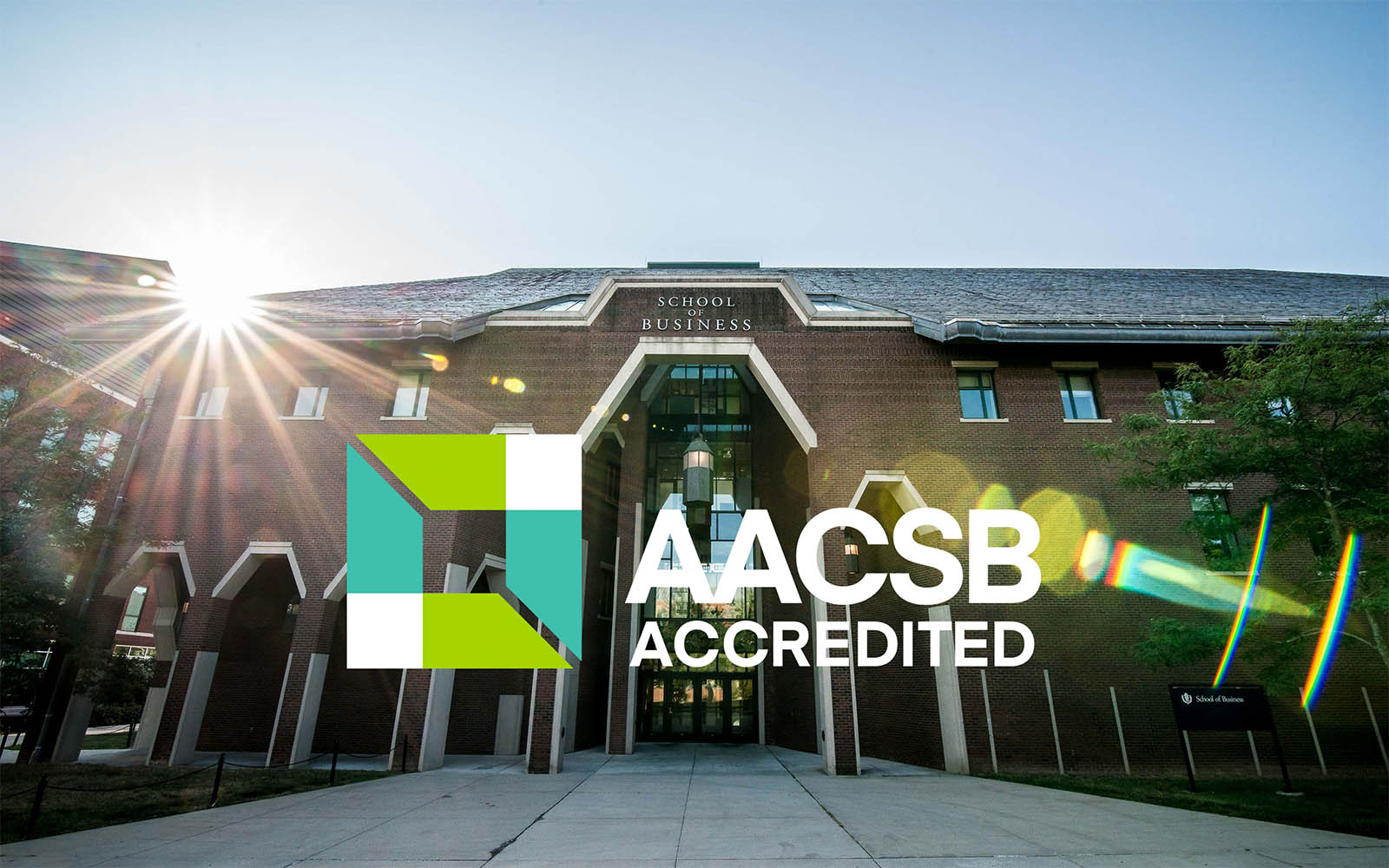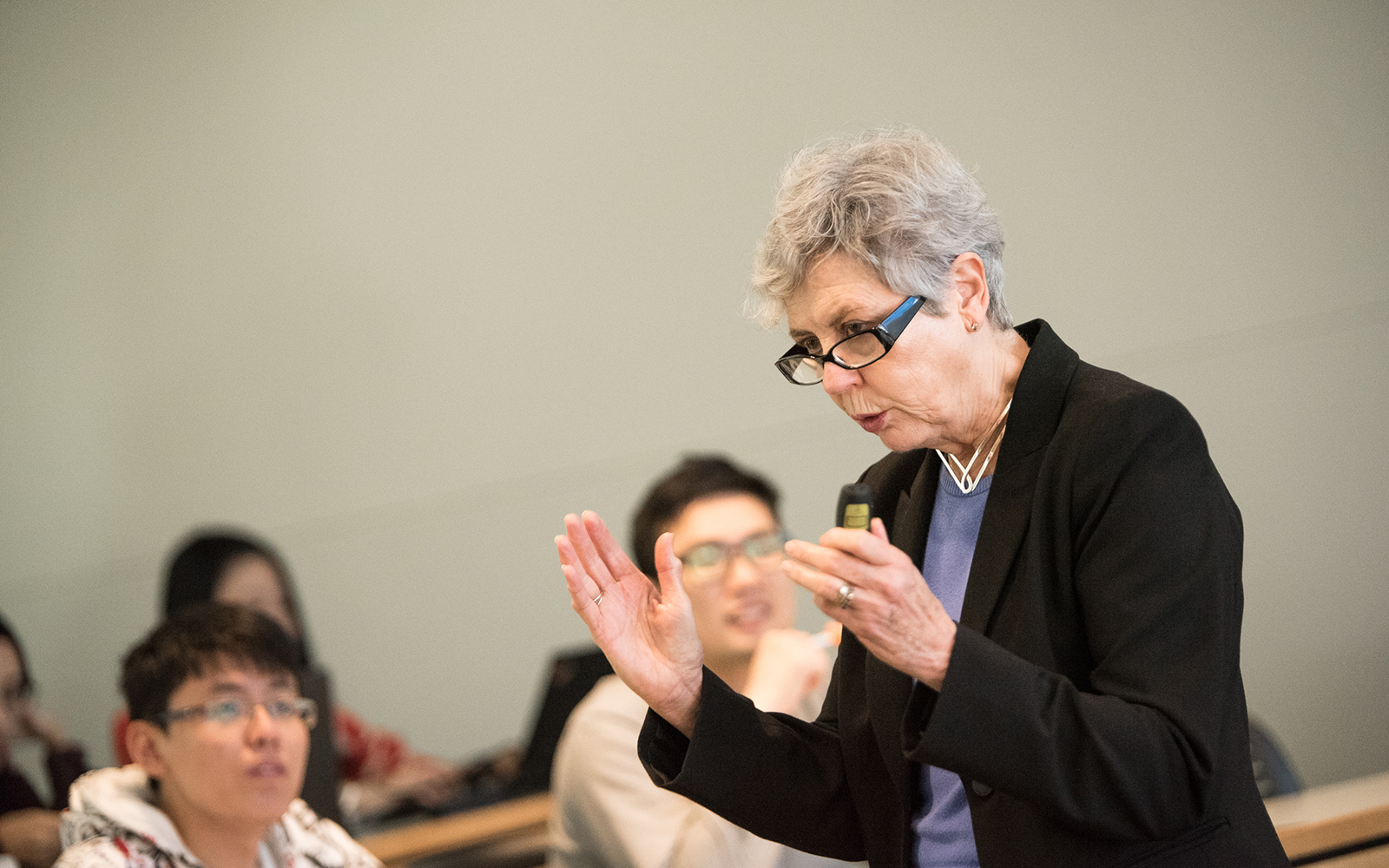
Three members of the School’s business law faculty were honored by their peers for their academic contributions and leadership achievements.Continue Reading

Three members of the School’s business law faculty were honored by their peers for their academic contributions and leadership achievements.Continue Reading

Marketing professor Kevin McEvoy, a champion of real-world learning and a perennial favorite educator among students, has been awarded the University Faculty Excellence in Undergraduate Teaching Award from the UConn Foundation.Continue Reading

The prestigious Association to Advance Collegiate Schools of Business (AACSB), considered by many to be the ‘gold standard’ of accrediting organizations, has re-accredited the School of Business and, separately, its Accounting program.Continue Reading

Although they didn’t earn top-standing in this year’s international negotiation challenge, UConn’s team of MBA and Law students were champions nevertheless.
“This experience has already impacted my work,” said MBA-candidate Jasdeep Singh. “I am currently Head of Operations and Marketing for 3BC LLC and we are in the midst of a negotiation that has been months in the making.Continue Reading

Senior Michael Greaves ’21 (BUS) outperformed more than 1,000 other applicants to win a coveted job in a leadership-rotation program at Ogilvy, the prestigious global advertising, marketing, and public relations agency in New York City.Continue Reading
UConn School of Business faculty, like Professor Robert Bird (Pictured above) are presenting short courses to give prospective graduate students a taste of what a UConn education would be like. (Nathan Oldham / UConn School of Business)
The UConn School of Business is offering five mini-courses to showcase the expertise of its faculty. Although the programs were designed for prospective graduate students, anyone is welcome to join the one-hour, online courses free of charge.Continue Reading

Although MBA student Nishant Jain and his team won first-place in the 6th Annual Business Law Negotiation competition last week, there really was no way to lose, he said.
“The ability to negotiate is a necessary skillset for any professional, and to be able to develop and refine this skill was a fantastic opportunity,” said Jain, whose teammates were law students Magdalena Klin and Jacqueline Cushing. “It is going to be very useful, especially when I am job hunting or trying to move up the ladder in an organization.”Continue Reading

For novice writers, it is often difficult to accept constructive criticism and develop a willingness to edit and repeatedly revise their work.
Overcoming that reluctance is essential for Ph.D. students who plan to become professors, because their careers hinge on their ability to clearly define their research and present it in a concise and appealing way to editors at top academic journals.
“For future faculty members, being able to write is their bread and butter,” said Professor Emerita Susan Spiggle. “You can have all the best data in the world but if you can’t write clearly and define the importance of your work, it really doesn’t matter at all.”Continue Reading

Marketers often collect and analyze customer information that is easy to access and synthesize, but omit or gloss over the deeper and more valuable analytics that can foster a powerful competitive advantage for their corporations.Continue Reading

What are some recommendations to make a business more welcoming to the LGBTQ community?
What employment rights does an employee have if he or she is experiencing a lengthy recovery from COVID-19?
And do new technology-enhanced corporate hiring tools eliminate, or exacerbate, sexism and racism in the workplace?
Those are some of the questions that legal scholars will address in UConn’s “Equity Now!” business law series, which is open to students, faculty, alumni, friends of UConn and other sponsoring institutions.Continue Reading